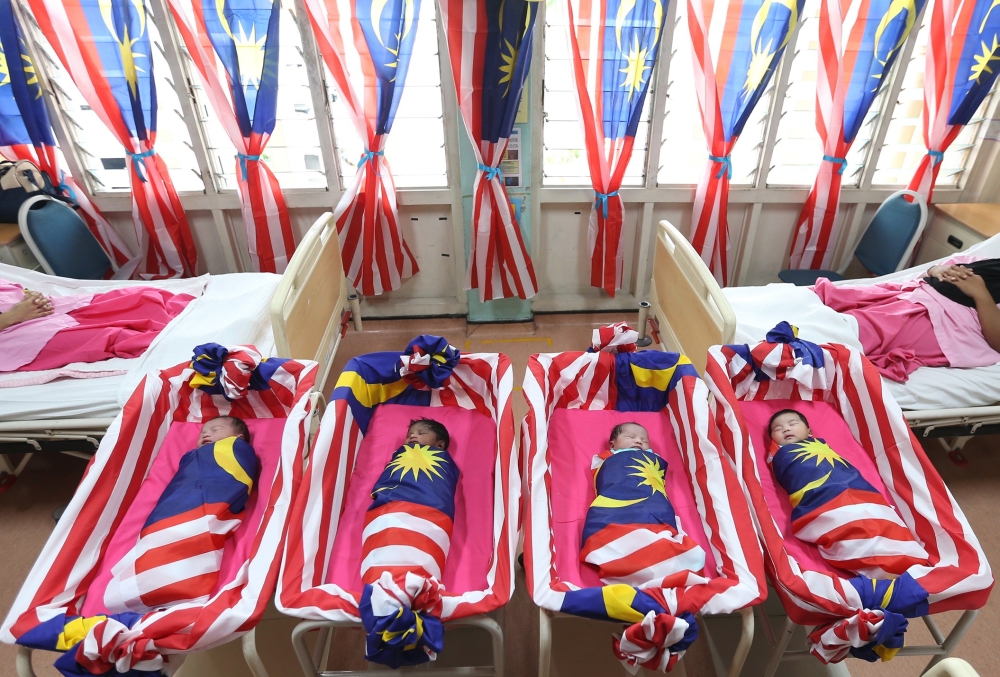JULY 10 — 1. Hakam refers to a recent engagement session organised by the Ministry of Home Affairs with several Non-Governmental Organisations (NGOs) to receive feedback on a potential bill to amend several provisions in the Federal Constitution pertaining to matters of citizenship. Hakam is made to understand that whilst the actual text of the amendment bill was not shared with the participants at the engagement session, several key changes presented to be part of the proposed bill, include the following matters:
(a) To substitute the word “father” to “either parent” in section 1(b) and (c) of Part II of the Second Schedule to the Federal Constitution. This is aimed at conferring citizenship rights by operation of law to children born overseas to a Malaysian father or mother (i.e. either parent), subject to conditions such as back-to-back renunciation of any other citizenship by the intended applicant as well as stringent timeline requirements;
(b) To remove the applicability of Section 19B of Part III of Second Schedule to the Federal Constitution (“Section 19B”) to provisions relating to the conferment of citizenship rights by operation of law;
(c) To delete the words “permanently resident” in section 1(a) and to repeal Section 1(e), both of Part II of the Second Schedule to the Federal Constitution (“Section 1 Amendments”) for consistency;
(d) To insert provisions consolidating and conferring more rights to the Government to reject or to postpone applications for citizenship; and
(e) To repeal Articles 15(3) and 16A of the Federal Constitution for consistency.
2. Whilst there is still lack of clarity (as the actual text of the amendment bill was not made available to stakeholders, interest-holders and the public) as to the exact substantive terms and ambit of the proposed amendments, Hakam expresses deep concern on what would seem to be an adverse “one-step forward, two-steps backwards” effect to citizenship rights embedded in the Constitution, when these proposed amendments are viewed as a whole.
3. Particularly on the intended Section 1 Amendments and the abolishment of Section 19B, Hakam states that any abrogation of these constitutional provisions would result in deepening social problems of statelessness. At present, there are several recent illuminating judicial interpretations, including that of the Federal Court, where the nett effect of Section 19B, Section 1(a), and Section 1(e) had been construed to allow foundlings, children separated from parents with no proof of parentage, and children born to stateless parents to be conferred automatic citizenship by operation of law.
4. The ambit of Section 19B was interpreted by a 5-member bench led by the Chief Justice herself in CCH & Anor (on behalf of themselves and as litigation representatives of one CYM, a child) v Pendaftar Besar bagi Kelahiran dan Kematian, Malaysia [2022] 1 MLJ 71 to cover “new born children who are left and discovered in a place without any trace of their biological parents”. In arriving at its decision, the apex court took judicial notice of the “harsh realities of life: this includes new born children left abandoned near dumpsites, baby hatches, public or school toilets, places of worship and so on”. In other words, the judicial interpretation of Section 19B allows abandoned children and foundlings to be presumed to be born to Malaysian parents at the time of their birth if the identity of their biological parents cannot be identified. This makes them citizens by operation of law. The overarching intent of Section 19B, as interpreted by the courts, is to prevent statelessness and to abolish any uncertainty that would result if this were left to the discretionary process and changing policies of Government[1].
5. Similarly, there is also a judicial trend where the courts have relied on Section 1(e) to allow children whose identity and nationality of their biological parents cannot be verified to be granted citizenship by operation of law on this broader basis. These recent judicial decisions include LKP & Anor v Pendaftar Besar Kelahiran dan Kematian, Malaysia [2023] 9 MLJ 242 and Farah Hani Shukor v Ketua Pengarah Jabatan Pendaftaran Negara (decided on 16.5.2023).
6. Hakam is also made to understand that the full breadth and ambit of Section 1(e) is also presently pending determination of the apex court in an appeal arising from the decision of Azimah bt Hamzah v Ketua Pengarah Jabatan Pendaftaran Negara & Ors [2023] 3 MLJ 227.
7. Hakam lauds the efforts taken by the Government to pursue the amendments to enable Malaysian mothers to confer citizenship to their children born overseas, in line with the manifestos of all political coalitions during the 15th General Election. However, this ought not be used as a reason to simultaneously include any regressive amendments that would lead to a further exacerbation of citizenship bottlenecks faced by the foundlings, abandoned children, children whose biological parents can longer be traced and children who are stateless due to no fault of their own. In particular, any abrogation to Section 19B and Section 1(e) may result in a collateral rollback of the judicial trend leaning towards a holistic and humanistic interpretation of the Federal Constitution.
8. Hakam urges the Government — a unity government that stands putatively for the people — to take cognisance of the plights faced by the most vulnerable sector of society, i.e. our children, in access to education, healthcare, and social services. These children, for all intents and purposes, identify themselves as Anak Malaysia. The Government must seek to consolidate and improve the existing citizenship framework that preserve these embedded safeguards within the Federal Constitution, taking a cue and in line with the recent judicial trends that have given a new lease of life and dignity to these vulnerable groups.
9. The Government is in a position to show that empathy is a more potent force than political strength. And this is the starting point of inclusivity, unity and a Madani concept of the Malaysian fabric.

*This is the personal opinion of the writer or publication and does not necessarily represent the views of Malay Mail.





















